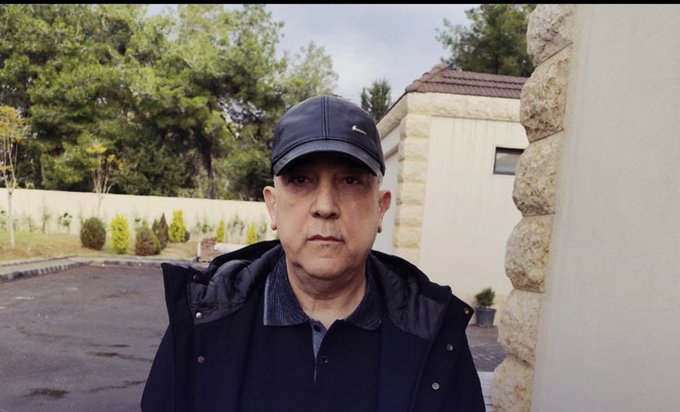Syria Arrests Former Regime Officer Atef Najib, Accused of Sparking 2011 Uprising
By Kardo Roj
DAMASCUS, Syria (North Press) – Syrian General Security announced on Friday the arrest of Atef Najib, a former high-ranking security official under Bashar al-Assad’s regime, accused of playing a central role in the 2011 protests that escalated into Syria’s devastating war.
Multiple media outlets reported that Najib was apprehended in a special security operation in the countryside of Latakia. The government-affiliated al-Watan newspaper was the first to confirm his arrest.
A Key Figure in Syria’s Uprising
Najib, a cousin of the ousted President Bashar al-Assad, served as the head of the Political Security Branch in Daraa at the start of the Syrian uprising. He is widely blamed for the brutal crackdown that ignited mass protests. His actions, particularly the torture of schoolchildren who had written anti-government slogans, were seen as a direct catalyst for the nationwide unrest that followed.
In the early days of the uprising, demonstrators specifically demanded Najib’s removal and prosecution. His brutal suppression of dissent in Daraa, including the reported detention and torture of students, fueled widespread anger and contributed to the outbreak of protests that later turned into a prolonged conflict.
A Long-Awaited Arrest?
The arrest of Najib has sparked discussions on accountability within Syria. Many opposition activists and human rights groups have long called for his prosecution, considering him a symbol of the regime’s oppressive tactics in the early stages of the conflict. However, it remains unclear whether his arrest is part of a broader reckoning with past abuses or a move driven by internal power struggles.
Following the news, Syrian activists and journalists circulated a recently taken image of Najib, allegedly showing him moments after his capture.
Observers believe his arrest could have political implications, possibly signaling shifts within Syria’s security establishment. The Assad regime has faced increasing domestic and international pressure over past human rights violations, and some speculate that Najib’s detention might be an attempt to deflect criticism or consolidate control within the security apparatus.
For years, Najib had remained out of the public eye, reportedly moving between different locations. While some assumed he had fled the country, others speculated that he had been living under state protection. His arrest now raises further questions about Syria’s internal political dynamics and the extent to which former regime figures could face accountability.

